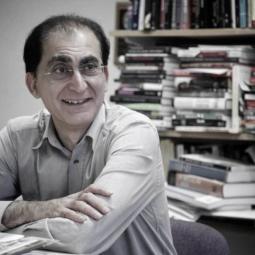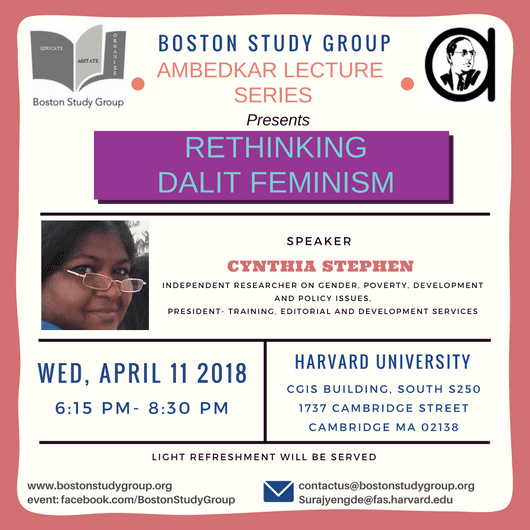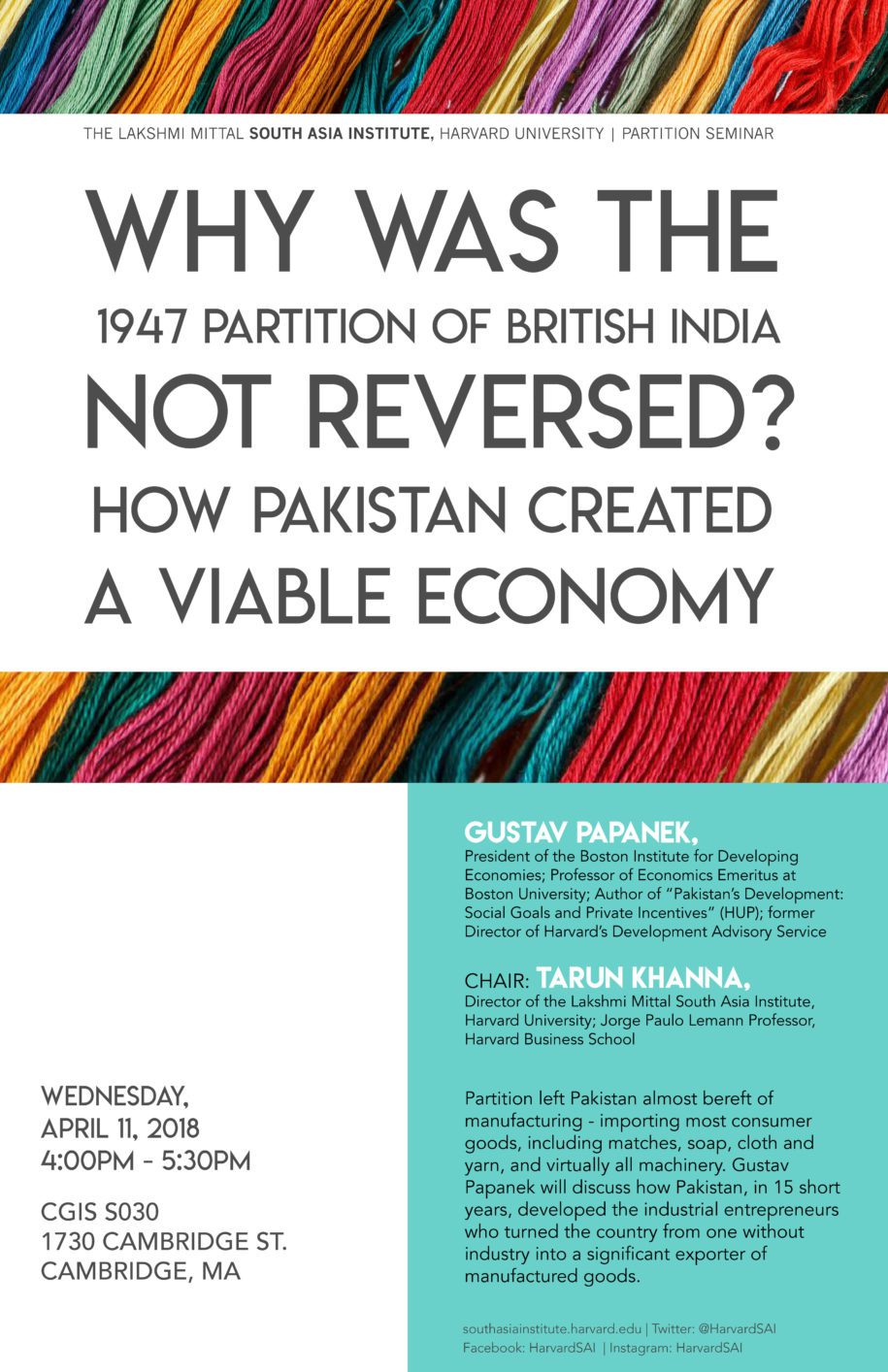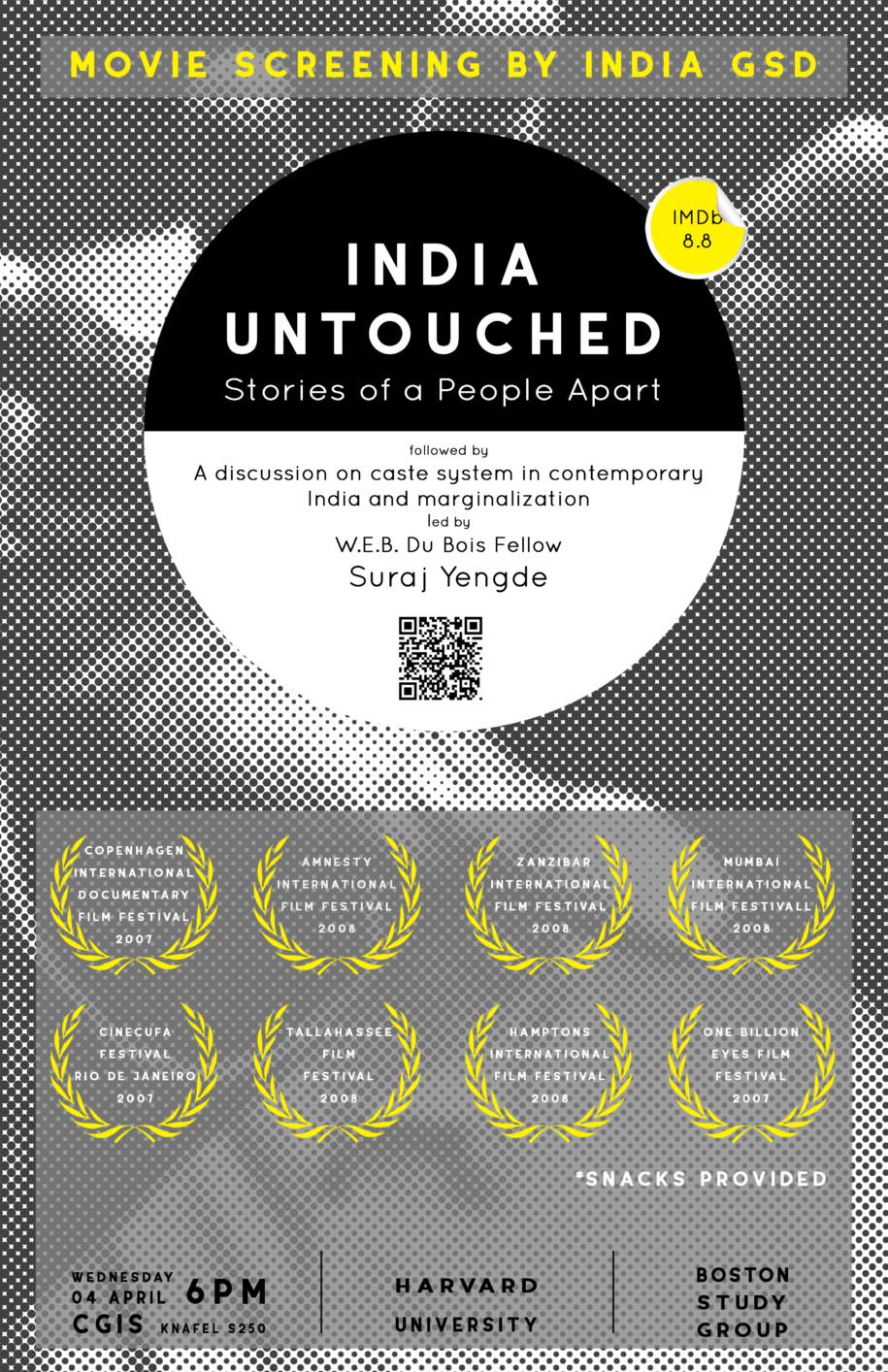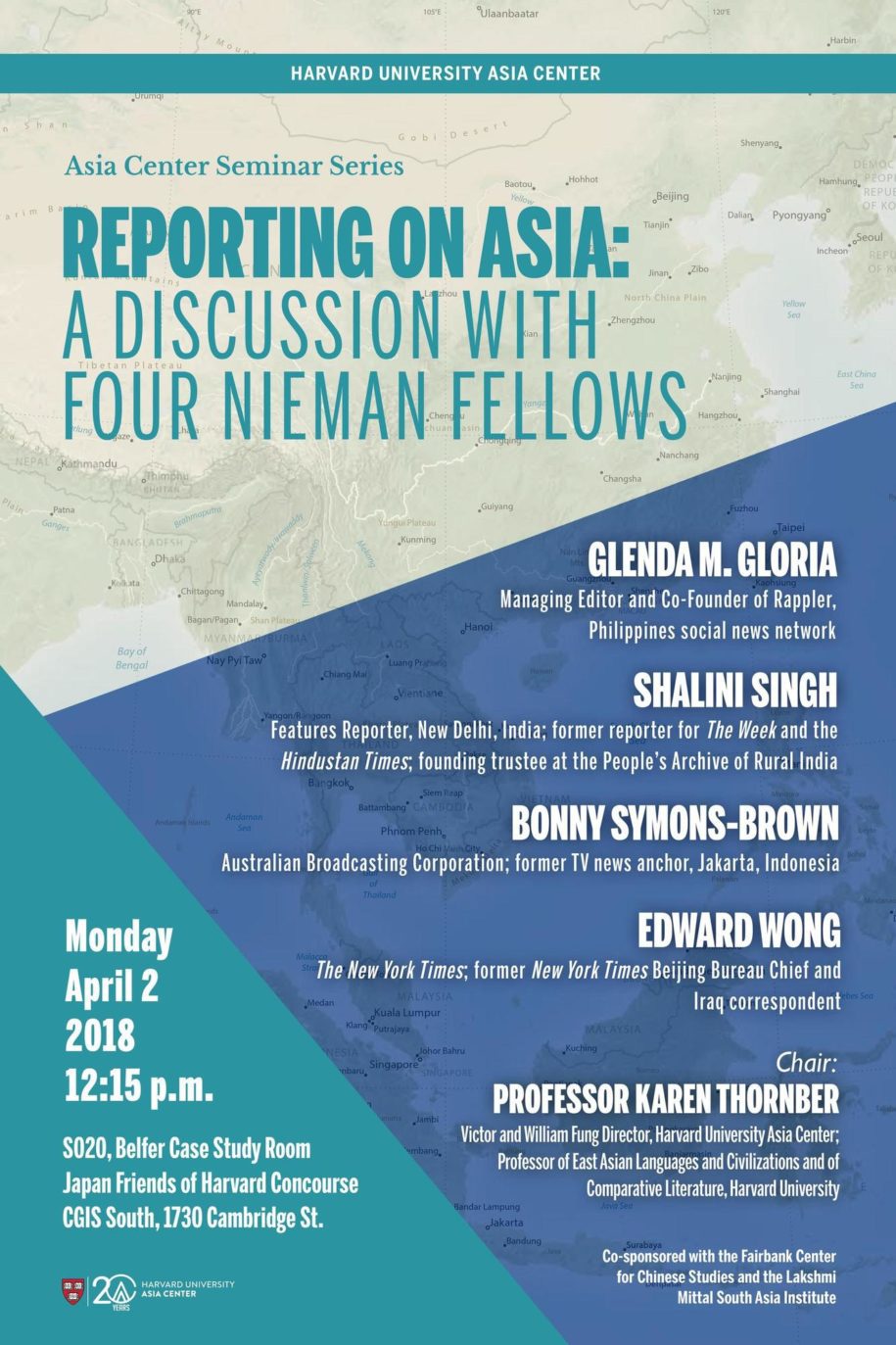WHEN
Thu, Apr 12, 2018 from 04:15pm — 06:00pm, ET
CO-SPONSORED EVENT Tariq Modood is the Founding Director, Research Centre for the Study of Ethnicity and Citizenship, Bristol University In 1997, the Runnymede Trust in London recognized Tariq Modood’s alternative definition of Islamophobia as anti-Muslim racism in the context of a multicultural society. Since then, this definition has emerged as the dominant interpretation of Islamophobia in […]
More InfoWHEN
Wed, Apr 11, 2018 from 06:15pm — 08:30pm, ET
Speaker: Cynthia Stephen, Independent Researcher on gender, poverty, development and policy issues. Light refreshments will be served.
More InfoWHEN
Wed, Apr 11, 2018 from 04:00pm — 05:30pm, ET
SAI SEMINAR SERIES Gustav Papanek, President of the Boston Institute for Developing Economies; Professor of Economics Emeritus, Boston University Chair: Tarun Khanna, Jorge Paulo Lemann Professor, Harvard Business School; Director, SAI Partition left Pakistan almost bereft of manufacturing – importing most consumer goods, including matches, soap, cloth and yarn, and virtually all machinery. Gustav Papanek […]
More InfoWHEN
Mon, Apr 9, 2018 from 12:00pm — 02:00pm, ET
FILM SCREENING Soz-A Ballad of Maladies Tushar Madhav, Director: A Ballad of Maladies Sarvnik Kaur, Writer: A Ballad of Maladies Chair: Ashutosh Varshney, Sol Goldman Professor of International Studies and the Social Sciences and Professor of Political Science at Brown University This film is a portrait of poets, musicians, and artists who have turned […]
More InfoWHEN
Mon, Apr 9, 2018 from 06:00pm — 08:00pm, ET
Performance by Ankit Chadha Chair: Hajnalka Kovacs, Preceptor in Hindi and Urdu, Department of South Asian Studies, Harvard University Dastangoi, the lost art of Urdu storytelling, developed in 8th century CE around the adventures of an Arab hero, Amir Hamza. These stories became very popular in 19th century North India. With the demise of the last known exponent of […]
More InfoWHEN
Fri, Apr 6, 2018 from 03:30pm — 05:00pm, ET
This talk will discuss 16th and early-17th century album and manuscript paintings made for Muslim patrons where the Nāth yogi appears as an emblem and surrogate for the Islamic spiritual path of taṣawwuf (Sufism), an archetype for the mystical traveler (sālik) and a figure of spiritual longing.
More InfoWHEN
Wed, Apr 4, 2018 at 06:00pm, ET
Even after 70 years of India’s emancipation it has remained plagued by the caste system and untouchability is its worst form of manifestation. Critically acclaimed director Stalin K looks at the insidious ways in which the social marginalization of a quarter of India’s population is sustained with the collusion of state agencies. […]
More InfoWHEN
Wed, Apr 4, 2018 at 04:00pm, ET — Mon, Apr 9, 2018, ET
The SAI Spring Art Exhibition features 2D and 3D art and artifacts inspired by Harvard students who traveled to South Asia sponsored by Harvard SAI travel grants. Some highlights include children’s picture books written in the Indigenous languages of Chittagong Hill Tracts in Bangladesh, photographs of fallen mosques in Myanmar and candid photos of workers […]
More Info